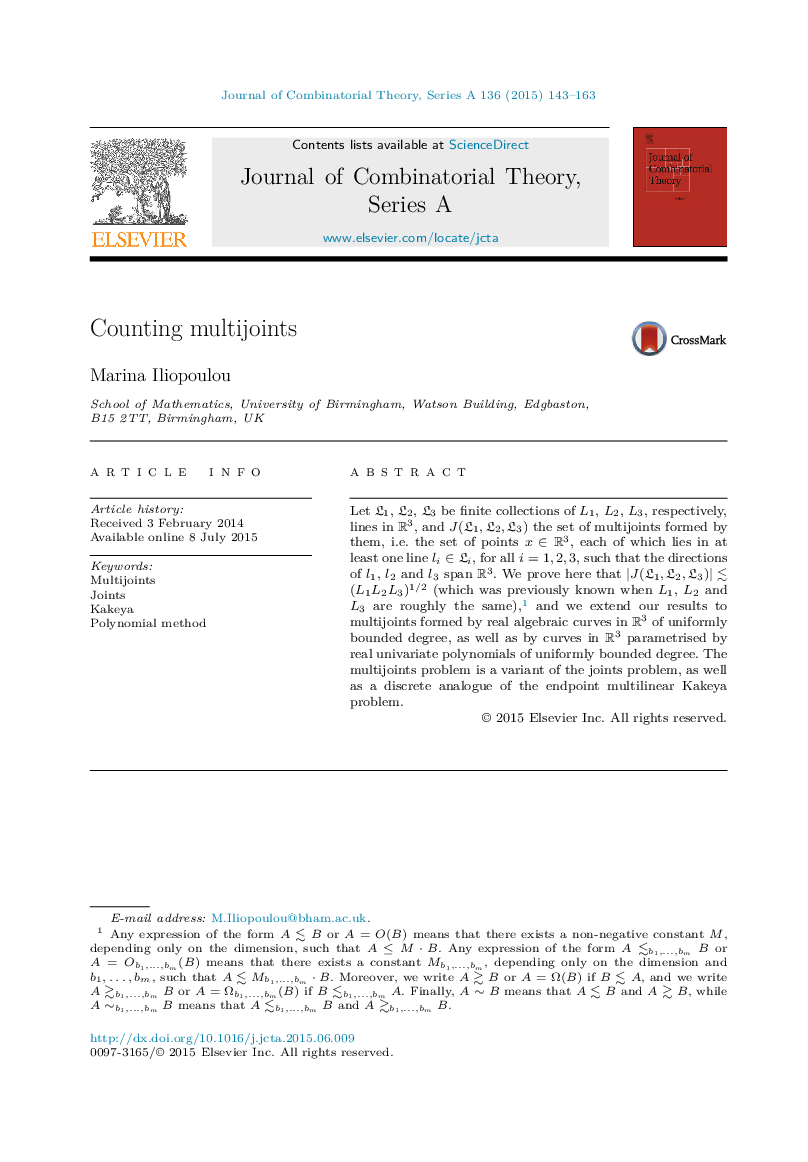| Article ID | Journal | Published Year | Pages | File Type |
|---|---|---|---|---|
| 4655137 | Journal of Combinatorial Theory, Series A | 2015 | 21 Pages |
Abstract
Let L1, L2, L3 be finite collections of L1, L2, L3, respectively, lines in R3, and J(L1,L2,L3) the set of multijoints formed by them, i.e. the set of points xâR3, each of which lies in at least one line liâLi, for all i=1,2,3, such that the directions of l1, l2 and l3 span R3. We prove here that |J(L1,L2,L3)|â²(L1L2L3)1/2 (which was previously known when L1, L2 and L3 are roughly the same),1 and we extend our results to multijoints formed by real algebraic curves in R3 of uniformly bounded degree, as well as by curves in R3 parametrised by real univariate polynomials of uniformly bounded degree. The multijoints problem is a variant of the joints problem, as well as a discrete analogue of the endpoint multilinear Kakeya problem.
Keywords
Related Topics
Physical Sciences and Engineering
Mathematics
Discrete Mathematics and Combinatorics
Authors
Marina Iliopoulou,
